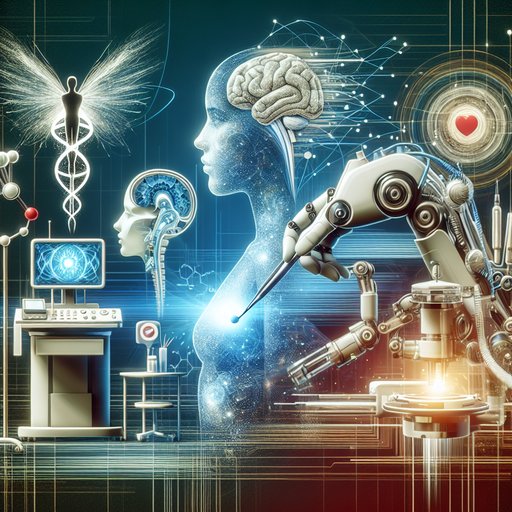
The medical field has always been at the forefront of technological advancement, and the rise of artificial intelligence (AI) and robotics is no exception. From AI-driven diagnostics to robotic surgery and drug discovery, these technologies are not only transforming medicine but also redefining the boundaries of what is possible in healthcare.
The history of medical technology is one of constant evolution. From the invention of the stethoscope in the 19th century to the development of antibiotics in the 20th, each new advancement has brought us closer to understanding and combating disease. Today, we stand on the brink of a new era in medicine, one defined by the integration of AI and robotics. These technologies are not just tools but partners in healthcare, working alongside doctors and nurses to improve patient outcomes and streamline medical processes.
AI-driven diagnostics, for instance, are revolutionizing the way we detect and treat diseases. Machine learning algorithms can analyze vast amounts of data to identify patterns and anomalies, enabling early detection of conditions like cancer and heart disease. These systems are not only faster and more accurate than human analysis, but they can also learn and improve over time. Similarly, robotics is transforming surgery.
Robotic systems like the Da Vinci Surgical System allow surgeons to perform complex procedures with unprecedented precision and control. These robots can reduce surgical errors, improve patient recovery times, and even perform surgeries remotely. In the field of drug discovery, AI is accelerating the development of new treatments. By simulating the interactions between molecules, AI can predict the effectiveness of potential drugs, drastically reducing the time and cost of clinical trials.
The potential of these technologies is immense, but they also raise important ethical and regulatory questions. As AI and robotics become more integrated into healthcare, we must ensure that they are used responsibly and that patient privacy and safety are protected. Despite these challenges, the future of medicine looks bright. With AI and robotics, we have the tools to detect diseases earlier, treat them more effectively, and ultimately, improve the quality of life for patients around the world.
As we look to the future, it's clear that the intersection of AI, robotics, and medicine will continue to be a space of innovation and discovery. The next chapter in the history of medicine is being written, and it's one that promises to be as transformative as any that have come before.






















































